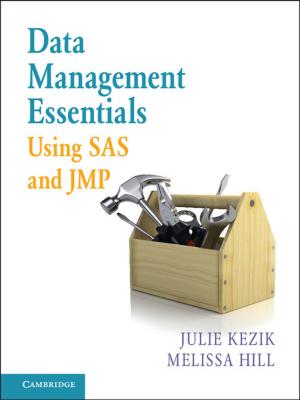The Cambridge Introduction to the Eighteenth-Century Novel
Fiction & Literature, Literary Theory & Criticism, British| Author: | April London | ISBN: | 9781139365680 |
| Publisher: | Cambridge University Press | Publication: | April 5, 2012 |
| Imprint: | Cambridge University Press | Language: | English |
| Author: | April London |
| ISBN: | 9781139365680 |
| Publisher: | Cambridge University Press |
| Publication: | April 5, 2012 |
| Imprint: | Cambridge University Press |
| Language: | English |
In the eighteenth century, the novel became established as a popular literary form all over Europe. Britain proved an especially fertile ground, with Defoe, Fielding, Richardson and Burney as early exponents of the novel form. The Cambridge Introduction to the Eighteenth-Century Novel considers the development of the genre in its formative period in Britain. Rather than present its history as a linear progression, April London gives an original new structure to the field, organizing it through three broad thematic clusters – identity, community and history. Within each of these themes, she explores the central tensions of eighteenth-century fiction: between secrecy and communicativeness, independence and compliance, solitude and family, cosmopolitanism and nation-building. The reader will gain a thorough understanding of both prominent and lesser-known novels and novelists, key social and literary contexts, the tremendous formal variety of the early novel and its growth from a marginal to a culturally central genre.
In the eighteenth century, the novel became established as a popular literary form all over Europe. Britain proved an especially fertile ground, with Defoe, Fielding, Richardson and Burney as early exponents of the novel form. The Cambridge Introduction to the Eighteenth-Century Novel considers the development of the genre in its formative period in Britain. Rather than present its history as a linear progression, April London gives an original new structure to the field, organizing it through three broad thematic clusters – identity, community and history. Within each of these themes, she explores the central tensions of eighteenth-century fiction: between secrecy and communicativeness, independence and compliance, solitude and family, cosmopolitanism and nation-building. The reader will gain a thorough understanding of both prominent and lesser-known novels and novelists, key social and literary contexts, the tremendous formal variety of the early novel and its growth from a marginal to a culturally central genre.















